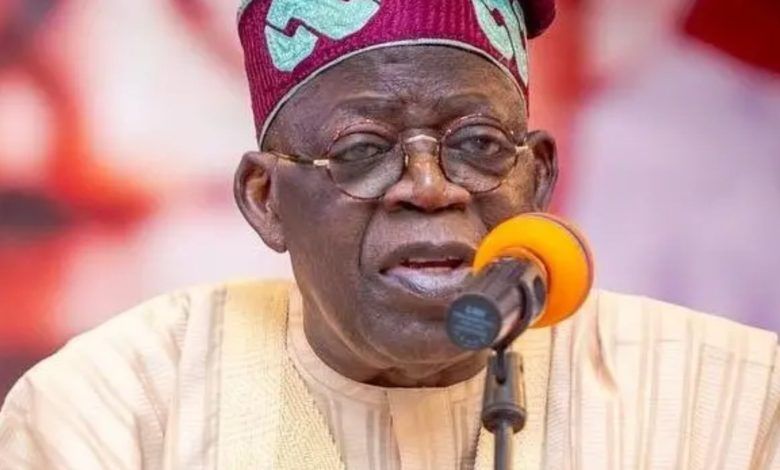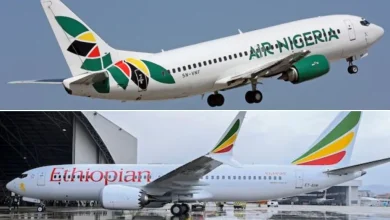
President Bola Ahmed Tinubu has called on the Chinese government to increase the $2 billion currency swap between Nigeria and China to further enhance the two nations’ trade relations. In addition, he urged China to review the $50 billion aid package announced by President Xi Jinping last year to better address Africa’s growing infrastructural needs.
During a meeting with China’s Minister of Foreign Affairs, Wang Yi, at the State House in Abuja on Thursday, President Tinubu expressed that the current currency swap agreement, valued at 15 billion yuan (approximately $2 billion), was insufficient to meet Nigeria’s development objectives. He emphasized that an increase in the currency swap would accelerate Nigeria’s infrastructure development and strengthen the countries’ strategic bilateral ties.
“We still demand more in the area of currency swap,” President Tinubu stated. “The level you have approved as a government for Nigeria is inadequate considering our programme. If you can increase that, it will be well appreciated. Our bond should grow stronger and become unbreakable.”
Furthermore, Tinubu addressed the $50 billion pledged by China to support Africa’s development. While acknowledging the commitment, he urged China to consider a larger investment to meet the continent’s extensive infrastructural needs. He emphasized that Africa, and particularly Nigeria, was eager to move forward with rapid development alongside its global counterparts.
“I am happy you are part of China’s highest decision-making body. We will want you to use your position to influence improved project funding,” he said, reiterating that Africa values its relationship with China and seeks deeper collaboration.
President Tinubu also appealed to China for support in Nigeria’s bid for a permanent seat on the United Nations Security Council. He asked Minister Wang Yi, who is a member of the UN Security Council, to leverage China’s influence to ensure Nigeria secures the position.
“You are a member of the UN Security Council. We want you to use your influence to ensure Nigeria secures the seat,” he stated.
Tinubu further reflected on his successful visit to China last year during the Forum on China-Africa Cooperation (FOCAC), where several Memorandums of Understanding (MOUs) were signed, focusing on enhancing Nigeria-China relations. He also highlighted the appointment of Joseph Tegbe to coordinate Nigeria-China relations and actualize the signed agreements.
Minister Wang Yi expressed gratitude to Nigeria for its continued adherence to the one-China principle and for appointing a Director General to oversee the implementation of the MOUs aimed at Nigeria’s economic development. He also commended President Tinubu for his visionary leadership and his contributions to regional peace and stability in Africa.
Yi reaffirmed China’s support for Nigeria’s development plans, especially in the areas of employment generation and infrastructural development, such as the ongoing railway modernization project. He confirmed that Chinese banks had been instrumental in financing these projects.
On the issue of the currency swap agreement, Yi assured President Tinubu that China would review the request to increase the swap line, acknowledging the growing financial cooperation between both nations. He also expressed China’s support for Nigeria’s potential membership in the BRICS group and emphasized the importance of strengthening Nigeria’s role in global development mechanisms.
Yi further outlined China’s unwavering commitment to supporting peace and stability in Africa. He reiterated China’s opposition to foreign interference and emphasized the importance of collaboration with regional organizations like the Economic Community of West African States (ECOWAS).
“The only way to address security challenges is through global solidarity,” Yi said, stressing China’s continued support for African peace initiatives.
China has also pledged military assistance to Africa, including 1 billion yuan (approximately $140 million) for training 6,000 military personnel and 1,000 police officers across various African countries. Yi emphasized that China would continue to work closely with African nations to enhance their security capacities.
Nigeria’s Foreign Affairs Minister, Yusuf Tuggar, also highlighted the importance of fostering domestic production of military equipment, echoing the sentiment that Nigeria should strengthen its defense capabilities through local manufacturing. He noted that Nigeria’s ability to lead regional security efforts was often hindered by external interference and stressed the need for international partnerships, particularly with China, to bolster Nigeria’s self-reliance in defense matters.
“We want to work with countries like China in domesticating production of military equipment,” Tuggar added, stressing that Nigeria’s adherence to constitutional governance has earned it the confidence of its international partners.





